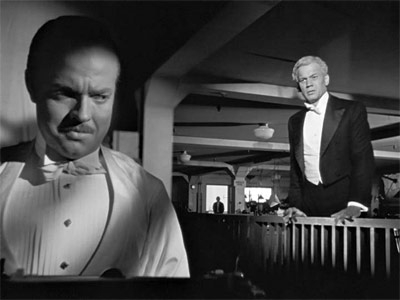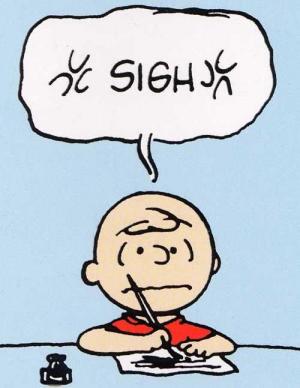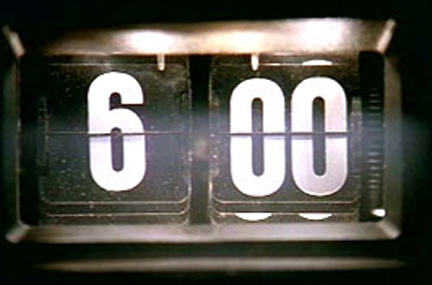Howard Kurtz, who covers the media for the Washington Post, quoted me on Monday in a column about the changing role of newspaper critics in the age of online opinion, professional and otherwise. Since what I said to Kurtz got noticed here and there, it occurred to me that it might be worth reprinting part of a column I wrote for The Wall Street Journal in 2007 in which I addressed the same topic at greater length.
* * *
I now spend more time reading art-related blog postings than print-media reviews. Increasingly, they’re sharper, livelier and timelier than their old-media competition.
This is why I have mixed feelings about the decline of regional newspaper criticism, much of which is uneven in quality and not a little of which is pointless. Why, for instance, should a medium-sized newspaper run locally written reviews of blockbuster movies or beach-blanket novels? That’s like assigning a restaurant critic to discuss the difference between Big Macs and Whoppers. To the limited extent that such commodity art requires “serious” criticism, wire-service copy will do the job perfectly well.
 The fine arts, however, are a different story. One of the most important civic duties that a newspaper performs is to cover the activities of local arts groups–but it can’t do that effectively without also employing knowledgeable critics who are competent to evaluate the work of those groups. Mere reportage, while essential, is only the first step. It’s not enough to announce that the Hooterville Art Museum finally bought itself a Picasso. You also need a staffer who can tell you whether it’s worth hanging, just as you need someone who knows whether the Hooterville Repertory Company’s production of Private Lives was funny for the right reasons.
The fine arts, however, are a different story. One of the most important civic duties that a newspaper performs is to cover the activities of local arts groups–but it can’t do that effectively without also employing knowledgeable critics who are competent to evaluate the work of those groups. Mere reportage, while essential, is only the first step. It’s not enough to announce that the Hooterville Art Museum finally bought itself a Picasso. You also need a staffer who can tell you whether it’s worth hanging, just as you need someone who knows whether the Hooterville Repertory Company’s production of Private Lives was funny for the right reasons.
Can bloggers do that? Of course–and some of them do it better than their print-media counterparts….
But blogging, valuable though it can be, is no substitute for the day-to-day attention of a newspaper whose editors seek out experts, hire them on a full-time basis, and give them enough space to cover their beats adequately. The problem is that fewer and fewer newspapers seem willing to do that in any consistent way. I don’t care for the word “provincial,” but I can’t think of a more accurate way to describe a city whose local paper is unwilling to make that kind of commitment to the fine arts.
To be sure, it’s hard for medium-sized regional newspapers to attract serious critics, but it can be done. Indeed, a well-edited regional paper is often the best possible place for an up-and-coming young critic to learn his trade. I got my start reviewing second-string classical concerts for the Kansas City Star thirty years ago. Now that such entry-level work is drying up, I fear for the future of arts journalism in America.
Any artist who’s been side-swiped by a lame-brained critic will doubtless be tempted to cheer this news. Before such aggrieved folk break out the Dom Perignon, though, they should pay heed to the warning of Virgil Thomson, who dominated American music criticism in the Forties and Fifties: “Perhaps criticism is useless. Certainly it is often inefficient. But it is the only antidote we have to paid publicity.”
If you think you can do without that antidote, more power to you–but you’d better be prepared to buy a lot of ads.

 As far as my adult reading goes, I incline to agree with Our Girl, who says that “I feel as though I can justify reading any book that keeps my attention.” This includes, needless to say, such noted purveyors of what H.L. Mencken called “homicidal fiction” as Elmore Leonard, Rex Stout, and Donald Westlake, all of whose novels are variously pleasing to readers with well-tuned ears.
As far as my adult reading goes, I incline to agree with Our Girl, who says that “I feel as though I can justify reading any book that keeps my attention.” This includes, needless to say, such noted purveyors of what H.L. Mencken called “homicidal fiction” as Elmore Leonard, Rex Stout, and Donald Westlake, all of whose novels are variously pleasing to readers with well-tuned ears. The Pulitzer Prizes were announced yesterday. Needless to say, I didn’t win one, nor was I a finalist, though I was nominated three times, for
The Pulitzer Prizes were announced yesterday. Needless to say, I didn’t win one, nor was I a finalist, though I was nominated three times, for  I’m up my ears in work in New York, Mrs. T is up in Connecticut taking care of various chores, and neither of these things will be changing until Sunday. As a result, I was feeling more than a little bit grumpy when I sat down in front of the TV on Friday night, surfed the channels, and settled on
I’m up my ears in work in New York, Mrs. T is up in Connecticut taking care of various chores, and neither of these things will be changing until Sunday. As a result, I was feeling more than a little bit grumpy when I sat down in front of the TV on Friday night, surfed the channels, and settled on  As for my own fluctuating gratitude, it ran high all weekend long, fed by Saturday’s glorious sunshine and my first long walk through Central Park in far longer than I care to admit. I am, I know, absurdly lucky, lucky in love and friendship and, perhaps rarest of all, in work. No doubt I spend too much time at the grindstone, but how many people get to earn their living writing books about men like Louis Armstrong and reviews of shows like, say, Gordon Edelstein’s current off-Broadway revival of The Glass Menagerie? And how many working journalists get to change hats in the middle of life and collaborate with a great composer on an opera, then see it produced to perfection and cheered to the echo?
As for my own fluctuating gratitude, it ran high all weekend long, fed by Saturday’s glorious sunshine and my first long walk through Central Park in far longer than I care to admit. I am, I know, absurdly lucky, lucky in love and friendship and, perhaps rarest of all, in work. No doubt I spend too much time at the grindstone, but how many people get to earn their living writing books about men like Louis Armstrong and reviews of shows like, say, Gordon Edelstein’s current off-Broadway revival of The Glass Menagerie? And how many working journalists get to change hats in the middle of life and collaborate with a great composer on an opera, then see it produced to perfection and cheered to the echo?